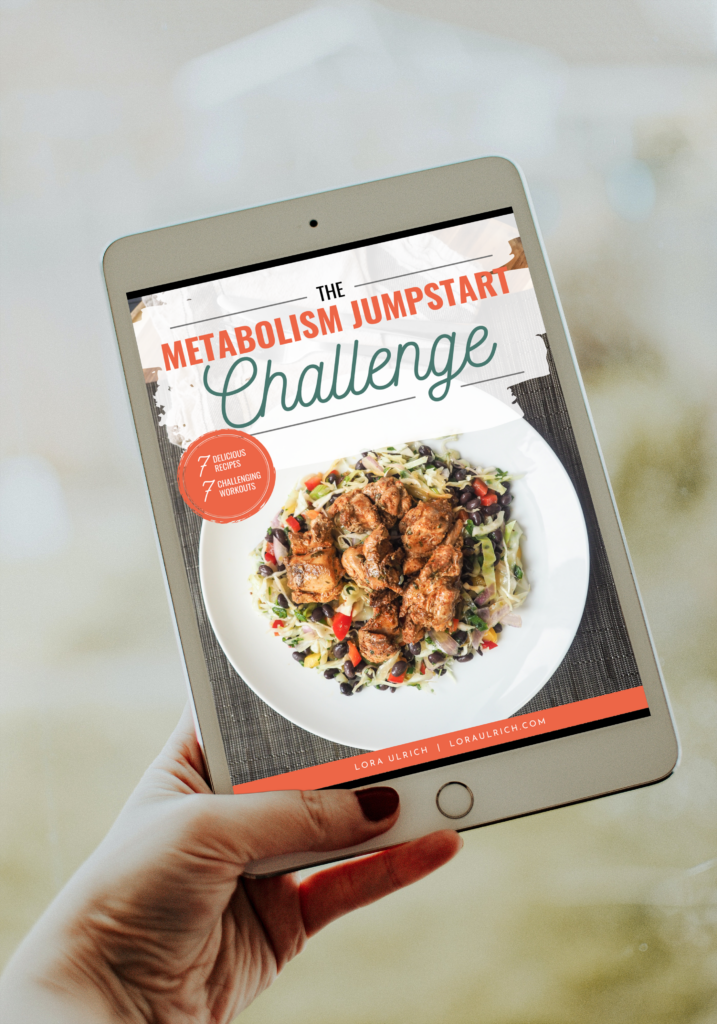Intermittent Fasting (IF) and menopause has gained significant attention in recent years, especially for its potential to support weight management, metabolic health, and overall wellness. But for women navigating the hormonal shifts of menopause, is IF an effective strategy? In this blog, we’ll explore how intermittent fasting can influence metabolism, hormonal balance, and menopausal symptoms.
What is Intermittent Fasting?
Intermittent fasting is an eating pattern that alternates between periods of fasting and eating. Rather than focusing on the types of food you eat, it’s about when you eat.
Several methods of intermittent fasting exist, but the most popular ones include:
- 16:8 – Fast for 16 hours and eat during an 8-hour window (e.g., eat between 12 p.m. and 8 p.m.).
- 5:2 – Eat normally for five days of the week and restrict calories about 500-600) on the other two days.
- 14:12: Fast for 14 hours and eat during a 12-hur window (e.g., eat between 8 a.m. and 8 p.m.).
- Fasting for 24 hours: Fast for 24 hours one to two times per week (e.g., dinner to dinner the next day).
- Alternate Day Fasting: Alternate between fasting days (16:8 or 14:12) and regular eating days.
Source: dr.brighten.com
Each method offers different benefits, and the key is to find a fasting schedule that aligns with your lifestyle and goals.
The Science Behind Intermittent Fasting and Hormonal Health
One of the primary benefits of intermittent fasting is its ability to affect hormone levels in ways that support metabolic health, including the hormones estrogen, insulin, and cortisol—all of which play significant roles during menopause.
Estrogen
As estrogen levels decline during menopause, women may experience symptoms like weight gain, hot flashes, and mood swings. IF may help by improving estrogen balance and supporting the body’s ability to utilize fat as an energy source, which can help reduce symptoms. Take note, intermittent fasting does not directly increase estrogen levels during menopause; however, it can indirectly help maintain hormonal balance by aiding in weight loss and reducing fat tissue, which can potentially decrease excess estrogen levels (often referred to as estrogen dominance”) that may be contributing to menopausal symptoms. (National Institutes of Health)
Insulin
Intermittent Fasting can hep improve insulin sensitivity, which is crucial for managing blood sugar levels. During menopause, insulin resistance may become more prominent, contributing to weight gain and fatigue. IF helps regulate insulin, which can improve energy and fat storage management. (Winona)
Cortisol
Cortisol, the stress hormone, can become elevated during menopause, contributing to stress and sleep disturbances. IF, when done correctly, may help stabilize cortisol levels, reducing its negative impact on sleep and mood.
Through its positive influence on these hormones, intermittent fasting may support women in managing the hormonal fluctuations of menopause. (The Menopause Charity)

Metabolism-Boosting Benefits of Intermittent Fasting
- Increased Fat Burning
When the body runs out of its immediate glucose supply during fasting, it shits to using stored fat for energy, which can enhance fat burning and support weight loss. (healthline.com) - Better Insulin Regulation
Intermittent fasting aids in stabilizing insulin levels, a crucial benefit during menopause when insulin resistance tends to rise. (PubMed Central) - Support for Hormonal Equilibrium
While IF doesn’t directly boost estrogen, it can contribute to overall hormonal balance by promoting weight loss and reducing fat stores, which can hold excess estrogen. (Cleveland Clinic) - Increase Growth Hormone Levels
Fasting encourages the production of hormone (HGH), which is essential for preserving muscle mass and promoting fat metabolism. (Healthline) - Cellular Maintenance & Repair (Autophagy)
Extended fasting triggers autophagy, a process where the body clears out damaged cells and enhances cellular regeneration, contributing to overall cellular health. (Healthline)
Managing Menopausal Symptoms with Intermittent Fasting and Menopause
Research indicates that intermittent fasting may help alleviate common menopausal symptoms such as hot flashes and night sweats, which many woman experience during this transition.
IF improves sleep quality, it can lead to numerous benefits, including increased daytime energy, sharper focus, reduced irritability, and better appetite control—potentially curbing cravings, especially for sugar.
Incorporating intermittent fasting into a menopause wellness plan may contribute to symptom relief and overall well-being.
Source: Dr. Jolene Brighten

Nutritional Considerations: What to Eat When Fasting During Menopause
When fasting during menopause, focus on nutrient-dense foods rich in fiber, protein, healthy fats, vitamins, and minerals. Prioritize fruits, vegetables, lean protein sources, such as fish, poultry, legumes, nuts, and seeds. Ensure sufficient calcium and vitamin D intake for bone health by incorporating leafy greens and fortified plant-based foods. During fasting windows, stay hydrated with calorie-free beverages like water, and unsweetened tea to help manage hunger. (Healthline)
Key Points to Remember:
✔ High-Fiber Foods – Whole grains, legumes (lentils, chickpeas), leafy greens, berries, and cruciferous vegetables help promote fullness and regulate blood sugar. (PubMed Central)
✔ Lean Protein Sources – Fish (salmon, sardines), poultry, tofu, tempeh, eggs, and plant-based protein sources help preserve muscle mass. (MedicalNewsToday)
✔ Healthy Fats – Avocadoes, nuts (almonds, walnuts), olive oil, and fatty fish contribute to hormone balance and overall cell function. (The Menopause Charity)
✔ Calcium-Rich Foods – Fortified plant milks, leafy greens (kale, spinach), sesame seeds, and fortified cereals help maintain strong bones. (Henry Ford Health)
✔ Vitamin D Sources – Fatty fish, fortified foods, and controlled sun exposure support calcium absorption and bone health. (Dr. Jolene Brighten)
✔ Antioxidant-Rich Foods – Colorful fruits and vegetables (bell peppers, berries, carrots, broccoli) help combat oxidative stress and inflammation. (onstella.com)
What to Avoid During Fasting Periods
- ❌ Sugary Drinks – Soda, fruit juice, and sweetened coffee
- ❌ Processed Foods – Packaged snacks, fried foods, and refined carbohydrates
- ❌ High-Sodium Foods – Processed meats, salty snacks
- ❌ Excessive Alcohol Consumption
Source: (PubMed Central)
By following these nutritional guidelines, you can optimize their fasting experience while supporting overall health during menopause.

Risks and Considerations: Who Should Avoid Intermittent Fasting During Menopause?
Intermittent fasting can offer various health benefits, but it may not be suitable for everyone, especially for women with certain health conditions. For instance, women with thyroid imbalances should exercise caution, as some fasting methods might reduce thyroid hormone production and impair conversion processes, potentially exacerbating hypothyroid symptoms. (Dr. Christianson)
Similarly, those with adrenal issues should be mindful, as prolonged fasting periods can elevate cortisol levels, potentially stressing the adrenal glands. (timerestrictedeats.com)
Therefore, it’s essential to consult with a healthcare provider or nutritionist before starting intermittent fasting, especially if you have underlying health issues.
How to Safely Start Intermittent Fasting During Menopause
If you’re considering IF, I always tell my menopausal ladies—it’s important to ease into it gently and know what’s going to be realistic that we can actually sustain:
- Start Slowly – Begin with a 12-hour fasting window (or whichever method you prefer) and gradually increase it as your body adjusts.
- Listen to Your Body – If you feel overly stressed, fatigued, or unwell, consider adjusting your fasting to protocol or consulting a professional.
- Stay Hydrated – Drinking plenty of water during fasting hours is essential for maintaining energy levels and supporting your body’s natural detoxification processes.
- Monitor Your Symptoms – Keep track of hour your body responds to fasting, including energy levels, sleep, mood, and menopausal symptoms.
Combine Intermittent Fasting with Other Metabolism-Boosting Strategies
For maximum benefits, combine intermittent fasting and menopause with other metabolism-boosting strategies.
- Exercise: Incorporate strength training and cardio to support muscle prevention and fat burning.
- Sleep Optimization – Ensure you get 7-9 hours of sleep per night to support hormone balance and recovery.
- Stress Management – Incorporate relaxation techniques like yoga or meditation to manage cortisol levels and support overall wellness.

Final Thoughts: Menopause & Metabolism – Can Intermittent Fasting Help?
Intermittent fasting during menopause can be a powerful combination for supporting metabolic healthy, weight management, and symptom relief during this transitional stage of life. While IF doesn’t directly increase estrogen, it helps regulate insulin, cortisol, and fat metabolism—key factors in managing menopause-related changes.
Success with IF comes from choosing a sustainable approach, prioritizing nutrient-dense meals, and pairing fasting with exercise, sleep, and stress management. However, it’s not for everyone. Women with thyroid or adrenal issues should consult a healthcare provider before starting.
Ultimately, IF can be a valuable tool for menopause wellness when approached with balance and flexibility.
Are You Ready To Take Control Of Your Metabolism & Achieve Lasting Results?
If you’re ready to stop battling your weight and start feeling energized, vibrant, and confident again, the Metabolism Jumpstart Group is the perfect program for you! This program is designed specifically for peri- to post-menopausal women, our monthly 4-week program focuses on sustainable, enjoyable strategies—not restrictive diets.

Not ready for a group program?
Try the Self-Guided Metabolism Jumpstart Challenge! For just $27, you can access the 5-Day Metabolism Jumpstart Challenge, where you’ll learn the secrets to becoming a fat-burning machine. You’ll fire up your metabolism, boost your calorie burn, and feel more energized—all within a few days. Plus, you’ll get my 30-Minute Tips to Jumpstart Your Metabolism Recording (a $77 value) absolutely free!

Yes, intermittent fasting can help manage menopausal symptoms by balancing hormones, improving insulin sensitivity, supporting weight management, and enhancing fat burning.
For women over 50, starting with a 12-hour fasting window (12:12) and gradually increasing to 14:10 or 16:8 is often effective, based on individual goals and comfort.
Menopause is considered complete when a woman has gone 12 consecutive months without a menstrual period, signaling the end of her reproductive years.
To slow aging after menopause, focus on balanced nutrition, regular exercise (including strength training), adequate sleep, stress management, and hydration to support hormonal health.
+ show Comments
- Hide Comments
add a comment